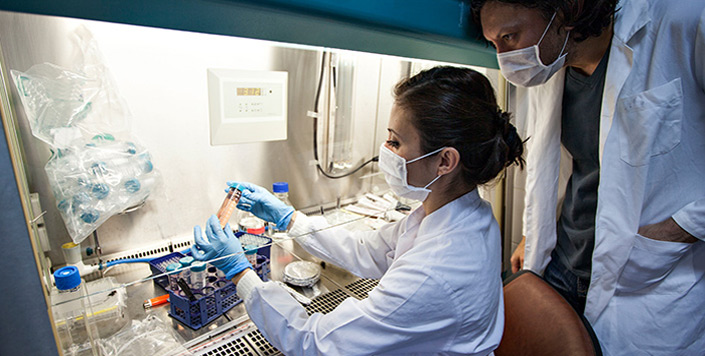
School of Medicine Publications and Presentations
Document Type
Article
Publication Date
12-2016
Abstract
Background and Purpose
A ruptured intracranial aneurysm (IA) is the leading cause of a subarachnoid hemorrhage (SAH). This study seeks to define a specific gene whose mutation leads to disease.
Methods
More than 500 IA probands and 100 affected families were enrolled and clinically characterized. Whole exome sequencing was performed on a large family, revealing a segregating THSD1 mutation. THSD1 was sequenced in other probands and controls. Thsd1 loss-of-function studies in zebrafish and mice were used for in vivo analyses, and functional studies performed using an in vitro endothelial cell model.
Results
A nonsense mutation in THSD1 (thrombospondin type-1 domain-containing protein 1) was identified that segregated with the 9 affected (3 suffered SAH; 6 had unruptured IA) and 13 unaffected family members (LOD score 4.69). Targeted THSD1 sequencing identified mutations in 8 of 507 unrelated IA probands, including 3 who had suffered SAH (1.6% [95% CI, 0.8%–3.1%]). These THSD1 mutations/rare variants were highly enriched in our IA patient cohort relative to 89,040 chromosomes in ExAC database (p<0.0001). In zebrafish and mice, Thsd1 loss-of-function caused cerebral bleeding (which localized to the subarachnoid space in mice) and increased mortality. Mechanistically, THSD1 loss impaired endothelial cell focal adhesion to the basement membrane. These adhesion defects could be rescued by expression of wild-type THSD1 but not THSD1 mutants identified in IA patients.
Conclusions
This report identifies THSD1 mutations in familial and sporadic IA patients, and shows that THSD1 loss results in cerebral bleeding in two animal models. This finding provides new insight into IA and SAH pathogenesis and provides new understanding of THSD1 function, which includes endothelial cell to extracellular matrix adhesion.
Recommended Citation
Santiago-Sim, T., Fang, X., Hennessy, M. L., Nalbach, S. V., DePalma, S. R., Lee, M. S., Greenway, S. C., McDonough, B., Hergenroeder, G. W., Patek, K. J., Colosimo, S. M., Qualmann, K. J., Hagan, J. P., Milewicz, D. M., MacRae, C. A., Dymecki, S. M., Seidman, C. E., Seidman, J. G., & Kim, D. H. (2016). THSD1 (Thrombospondin Type 1 Domain Containing Protein 1) Mutation in the Pathogenesis of Intracranial Aneurysm and Subarachnoid Hemorrhage. Stroke, 47(12), 3005–3013. https://doi.org/10.1161/STROKEAHA.116.014161
Publication Title
Stroke
DOI
10.1161/STROKEAHA.116.014161
Academic Level
faculty
Mentor/PI Department
Molecular Science

